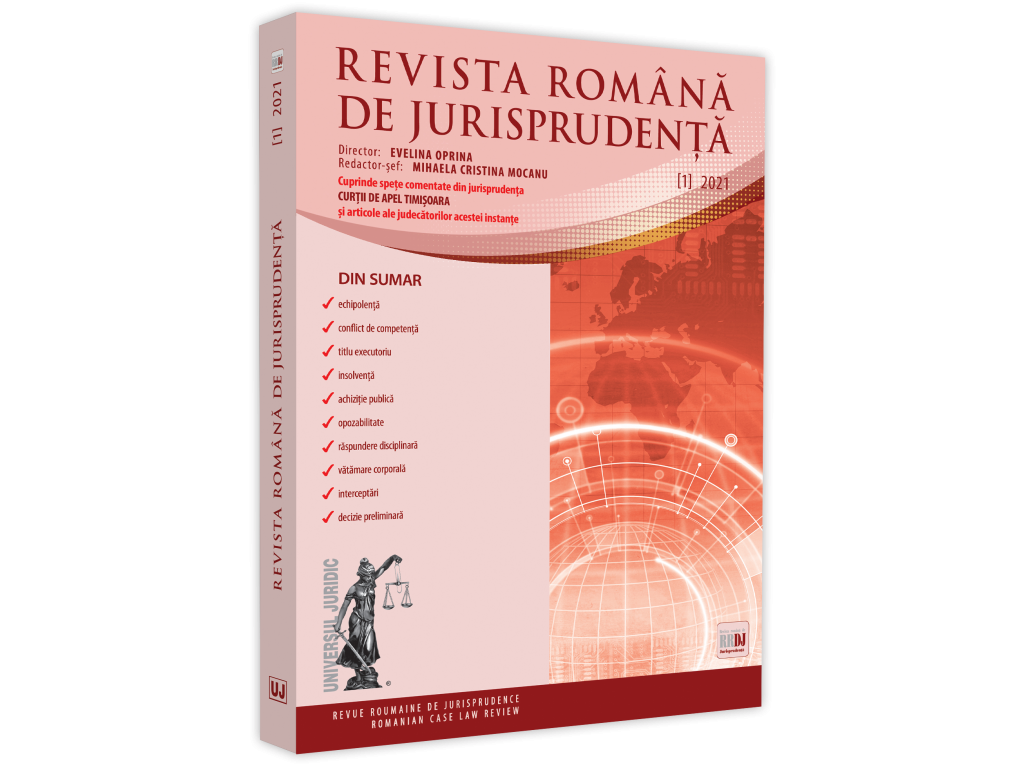The authority of res judicata. The beginning of the limitation period for the enforcement of a court decision issued under the Code of Civil Procedure 1865. Application in time of procedural rules
DREPT CIVIL ŞI DREPT PROCESUAL CIVIL
Abstract
The res judicata authority knows, according to the current regulation, two procedural manifestations – i.e. that of procedural exception and that of presumption, a means of proof capable of proving something in connection with the legal relations between the parties.
While, as a procedural exception (which corresponds to a negative, extinctive effect, likely to stop the second trial), the res judicata authority indeed presupposes the triple identity of elements (object, parties, cause), it is not the same when this important effect of the judgment is positive, i.e. demonstrating the way in which certain litigation aspects were previously resolved in the relations between the parties, without the possibility to rule otherwise.
In other words, the positive effect of the res judicata is imposed in a second trial which is related to the previously resolved litigation and may not be contradicted. This regulation of the res judicata authority in the form of presumption comes to ensure, out of the need for order and legal stability, the avoidance of contradictions between the recitals of the court decision.
However, the positive effect of the judgment in the present case does not mean that the earlier judgments can no longer be contradicted, given that the plaintiff in the present case, third party to those judgments, tends to prove the contrary thus submitting to the court for analysis litigious issues that were not resolved in relation to it.
The provisions of Chapter II of Law no. 76/2012, including those provided by Article 8, cited in the decision of the appellate court, do not represent transitional norms to regulate a matter of temporal law, but aim at reconciling the special legislation enacted under the old code with the rules of the new code of civil procedure.
Starting from the premise that the nature and character of a sentence pronounced on the basis of the old Code of Civil Procedure cannot be modified by a new law, it is appreciated that the last sentence of Article 706 paragraph (2) of the Civil Procedure Code applies only to judgments delivered under the new code.








